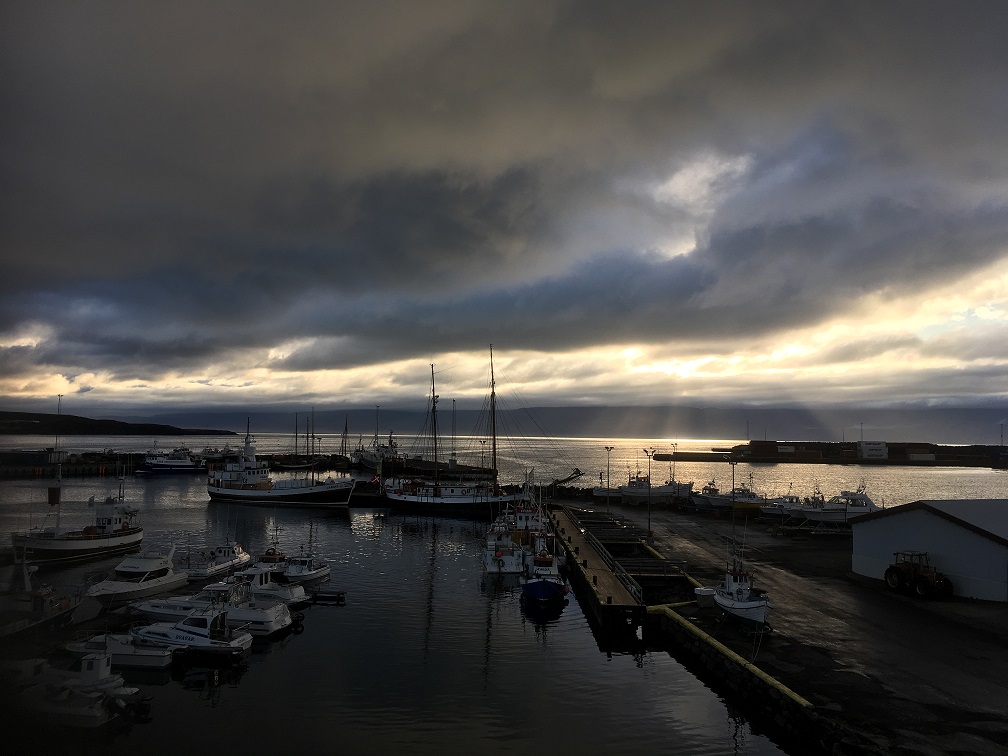Reflection on methods and ethics in Arctic interdisciplinary research
Reflection on methods and ethics in Arctic interdisciplinary research
Jean-Sébastien Boutet
What does it mean to conduct ethical research with/in communities? Who are the communities we work and research with? What methodological tools and insights are needed in order to address such questions? A small group of PhD students, including the REXSAC doctoral students, along with several professors had the privilege to gather in beautiful Akureyri, Iceland during the last week of September to discuss and ponder these issues, both in the formal context of seminar rooms and in more informal field settings. It was obvious from the beginning that a few days of intensive reflection would not lead to common and coherent answers; the usefulness of the exercise instead rested in the diversity of perspectives expressed and in some of the more common threads of interrogations that emerged as the workshop progressed. For some, it seemed most important to adhere first and foremost to the standards of research integrity as conceived and determined within academia, while others situated their primary ethical allegiance with the communities where they live, have developed work relations or hope to engage with during their studies.
More tangibly, we were also invited to consider the strengths and weaknesses that characterize the methods and protocols we use in the context of our Arctic-based research. People wondered about the geographic and temporal scales at which they can or should frame and locate their research; we asked about representing, reproducing, and generalizing project results; we discussed how to address real-world complexity, through simplification and assumptions or nuances and thick descriptions; we shared our experiences with qualitative, quantitative, and mixed methodologies; and we remained largely perplexed and daunted by the commitment to interdisciplinary approaches to socio-ecological problems.
It was at times challenging to structure the relevant questions and attempt answers without reverting to a very dichotomous, black and white conceptualization of the categories at play. Yet no matter where one felt most comfortable along the various spectra that ranged from communities to the academy, from the particulars to the universals or from global to local, from the natural to the human sciences, and from the field to the archive, we shared at least some questions which seemed to puzzle us all: Is there such a thing as academic neutrality? Is it desirable? Or, by contrast, is there a risk of being perceived and potentially acting as a biased researcher? Can we and should we meaningfully engage with typically more powerful communities of practitioners such as mining companies, industry representatives and professional consultants? Can our research results be (mis)appropriated for ends which we failed to or could not foresee? How can we prepare against and counter such possibility? Are northern communities over-researched, or have certain topics received too much or too little attention, and should they be tackled through a novel lens?
I would prefer to think in perhaps idealistic terms: as young students who are getting started and are excited to engage in new, creative and intellectually stimulating work, we need not necessarily conceptualize academic obligation and responsibility towards communities as mutually exclusive. On paper it has indeed become fashionable within professional associations and research networks everywhere to emphasize ethical protocols for engaging with Indigenous groups, and not uncommonly the guidelines direct us to involve community actors at the project design phase, to co-construct research problems and to co-produce knowledge as part of establishing a mutual exchange, even to be active in a “decolonial process.” But what does it all mean in practice? Is the university environment supportive of such tasks? I wonder if the academic pressures and strict timelines faced by PhD students as they enter and move through graduate school are in fact congruent with a moral approach which claims to make space for other actors, other communities, and other knowledges within the world of professional science.
Adam Gaudry writes, “research is often an extractive process,” “taking someone else’s knowledge for the benefit of our careers and reputations.”[1] This is not a good state of affairs for the research community, and it leaves me with much to think about as I journey back to my home institution in Stockholm. At this early stage in my doctoral studies, I am aware of the constraints of higher education and unsure whether institutional discipline is truly reflective of a university that discursively cares about ethics, communities, and Indigenous peoples. In this context, working and researching in dialogue with communities is a real challenge; it is a choice that I should consider carefully, continually revisit and remake.
[1] “Insurgent research,” 113, 116.
Photo: Húsavík harbour, Iceland, September 2017. Credit: Jean-Sébastien Boutet





